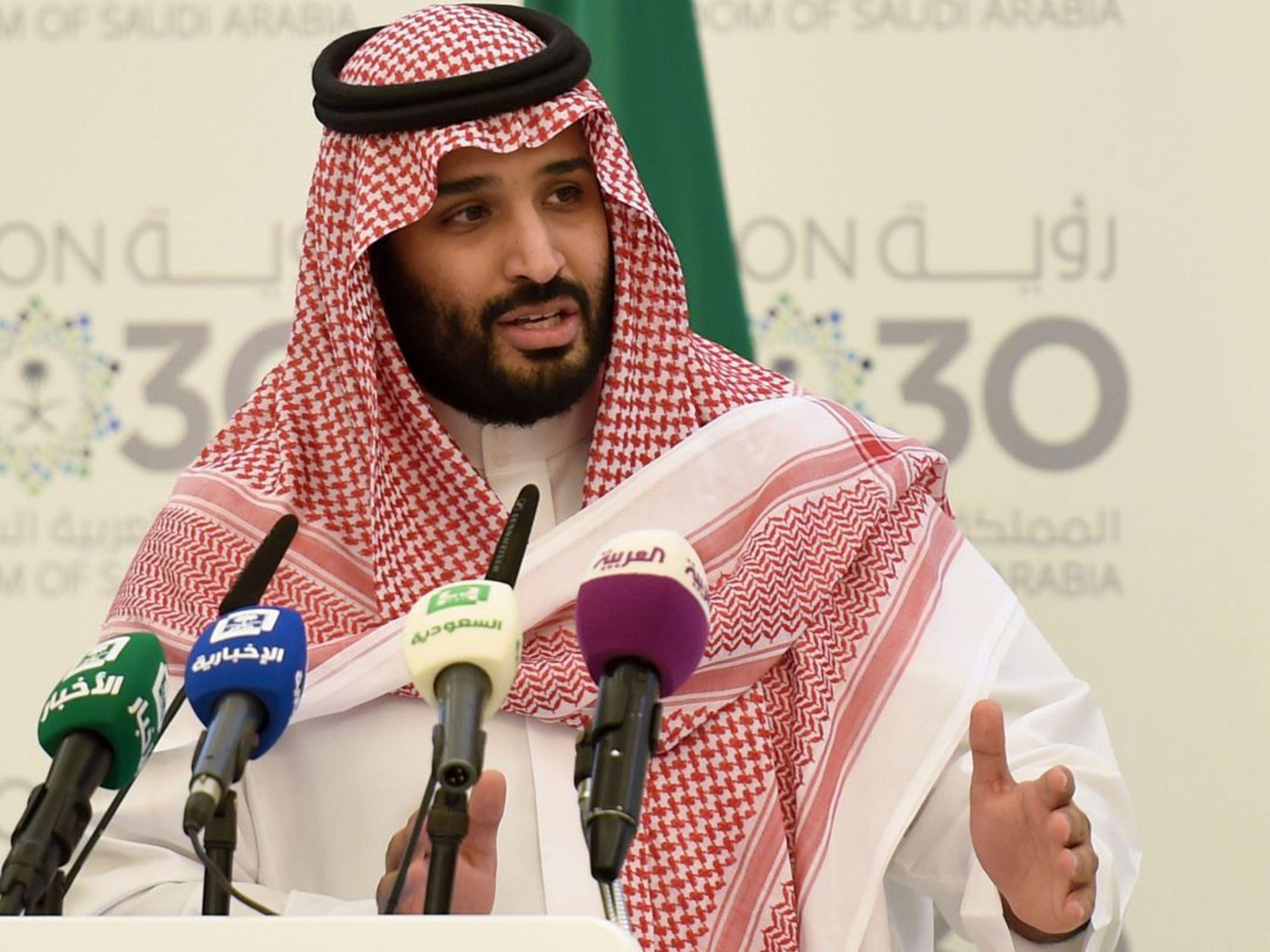Saudi Arabia is 'not ready' for women drivers, says deputy crown prince
The deputy crown prince has previously appeared to express support for more women working

Your support helps us to tell the story
From reproductive rights to climate change to Big Tech, The Independent is on the ground when the story is developing. Whether it's investigating the financials of Elon Musk's pro-Trump PAC or producing our latest documentary, 'The A Word', which shines a light on the American women fighting for reproductive rights, we know how important it is to parse out the facts from the messaging.
At such a critical moment in US history, we need reporters on the ground. Your donation allows us to keep sending journalists to speak to both sides of the story.
The Independent is trusted by Americans across the entire political spectrum. And unlike many other quality news outlets, we choose not to lock Americans out of our reporting and analysis with paywalls. We believe quality journalism should be available to everyone, paid for by those who can afford it.
Your support makes all the difference.Saudi Arabia is not yet ready to end the world's only ban on women driving cars.
Despite moves towards rights for women under King Abdullah before his death, deputy crown prince Mohammed bin Salman Al Saud has said the Saudi community "is not convinced about women driving".
The 30-year-old prince, who has amassed increasing powers since his father King Salman came to the throne, said the topic was not about Islam but about cultural norms.
"Women driving is not a religious issue as much as it is an issue that relates to the community itself that either accepts it or refuses it," he said, according to local media reports.
The defence minister and favourite son of the current king, who is suffering from dementia, has been accused of influencing Saudi policy from the wings since his father came to the throne last January.
The German intelligence agency BND published a memoir which said the prince's concentration of power into his own hands “harbours a latent risk that in seeking to establish himself in the line of succession in his father’s lifetime, he may overreach”.
Prince bin Salman has elsewhere appeared to indicate that he is supportive of increasing women's rights in the Sunni Islam-majority country.
In a previous interview he has said: "We believe women have rights in Islam that they've yet to obtain."
Yet he said most recently that the "community" still thinks allowing women to drive will have negative consequences.
When asked why Saudi Arabia has one of the lowest rates of women in the workforce in the world he said change would "take time".
"[The woman] is not used to working. She needs more time to accustom herself to the idea of work," he told The Economist.
"A large percentage of Saudi women are used to the fact of staying at home. They're not used to being working women.
"It just takes time."
He also said women working would help the country be more productive and deal with population growth issues.
Women in Saudi Arabia cannot open a bank account without their husband's permission or leave the home without a male guardian known as a "mahram".
The Shoura Council in the country, the king's advisory body, recently ruled that female television presenters should not "show off their beauty", while a young woman who was raped while out by herself received more lashes in punishment than one of her attackers.
During his lifetime, previous monarch King Abdullah opened the first coeducational university, named the first female deputy minister and said women can vote and run in municipal polls, despite strong opposition from religious clerics.
Join our commenting forum
Join thought-provoking conversations, follow other Independent readers and see their replies
Comments